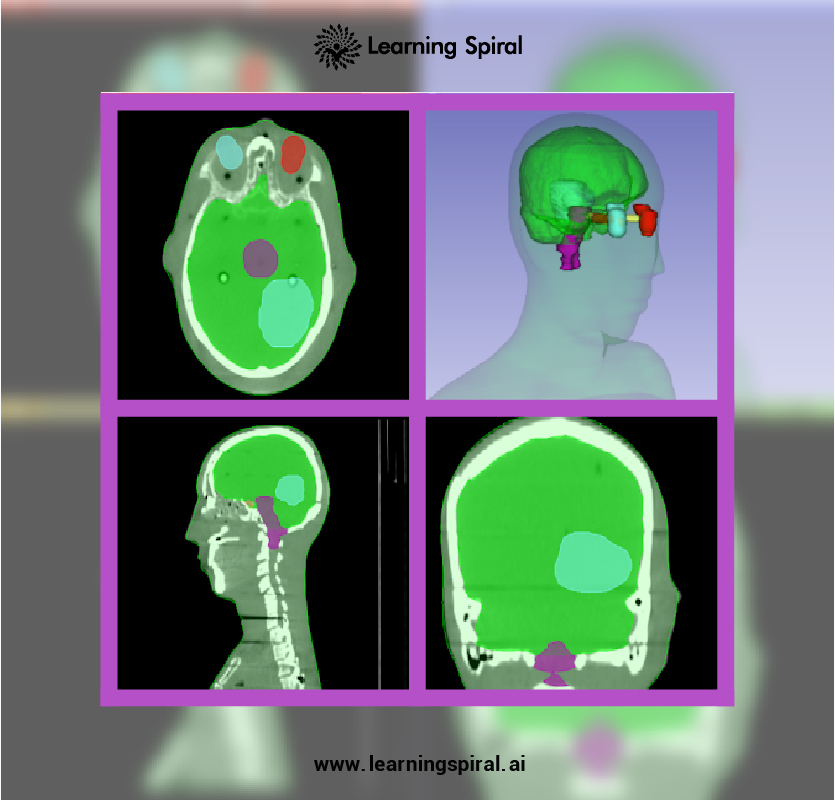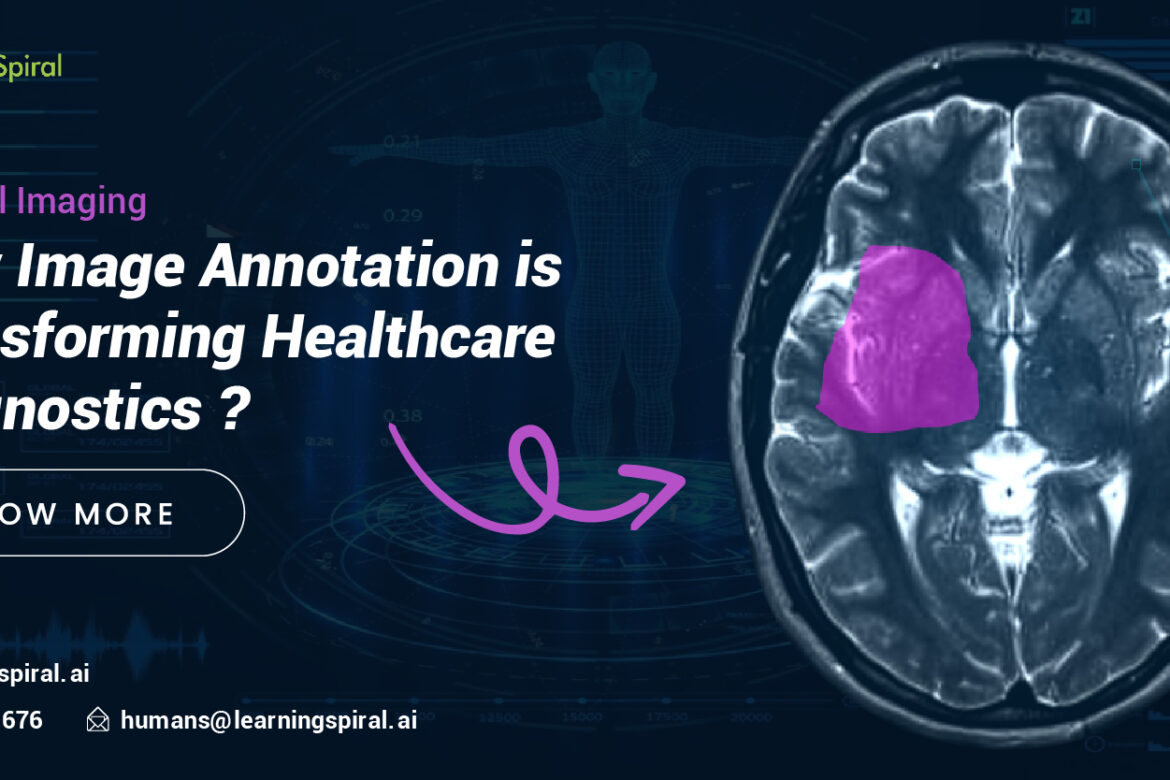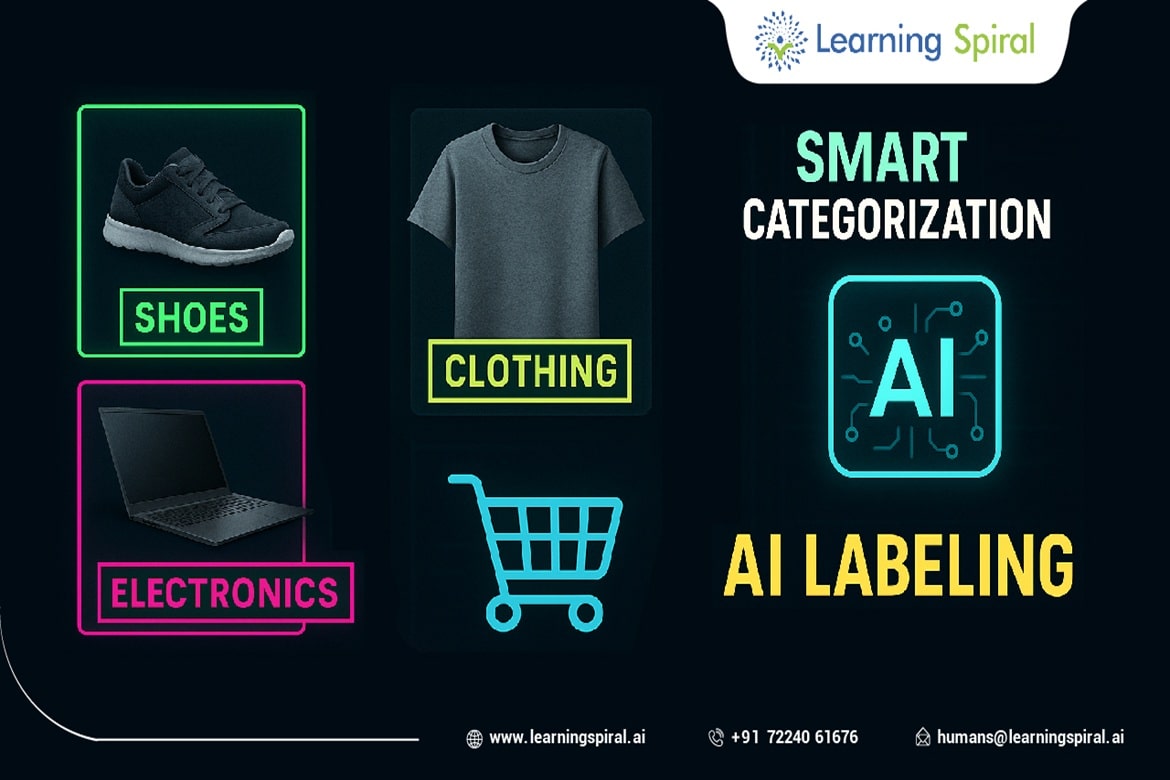The field of medicine is witnessing a revolution driven by artificial intelligence (AI). One of the key areas where AI is making a significant impact is medical imaging diagnostics. X-rays, CT scans, MRIs, and other imaging techniques provide a wealth of information about the human body, but accurately interpreting this information can be time-consuming and prone to human error.
This is where medical image annotation comes into play, acting as the invisible engine powering AI-powered diagnostics.

The Power of Labeled Data:
AI algorithms, like any powerful tool, rely on quality data for optimal performance. In medical imaging, this data takes the form of meticulously labeled images.
Medical image annotation involves identifying and marking specific regions of interest (ROIs) within an image, assigning them relevant labels. These labels can be anatomical structures, pathologies (disease processes), or even subtle abnormalities that might escape the human eye.
The Annotation Advantage:
The benefits of using annotated medical images for AI training are numerous:
- Improved Accuracy:
By learning from vast amounts of accurately labeled data, AI models can achieve superhuman levels of accuracy in detecting anomalies and making diagnoses. This can lead to earlier detection of diseases, improving patient outcomes.
- Reduced Bias:
Human radiologists can be susceptible to unconscious biases based on factors like experience or patient demographics. AI models trained on diverse and well-labeled data can mitigate these biases, leading to fairer and more objective diagnoses.
- Increased Efficiency:
Automated analysis of annotated images through AI can significantly reduce the time required for image interpretation. This frees up radiologists’ time to focus on complex cases or patient interaction, improving overall diagnostic workflow.
Emerging Applications:
Medical image annotation is a complex and specialized task requiring a thorough understanding of human anatomy, pathology, and medical terminology. Trained annotators, often medical professionals or individuals with relevant scientific backgrounds, meticulously review images and apply labels according to standardized protocols.
AI-powered medical imaging diagnostics with the help of annotated data are revolutionizing various healthcare specialties:
- Cancer Detection: AI models can analyze mammograms, lung scans, and other images to detect early signs of cancer with high accuracy, leading to more timely treatment interventions.
- Neurological Disorders: AI can assist in diagnosing neurological conditions like Alzheimer’s disease or Parkinson’s disease by analyzing brain scans, potentially leading to earlier detection and improved management strategies.
- Precision Medicine: By analyzing labeled images along with other patient data, AI can help personalize treatment plans by identifying patients who are more likely to respond favorably to specific therapies.
Challenges and Considerations:
Despite the immense potential, some challenges need to be addressed:
- Data Privacy: Ensuring patient data privacy while using medical images for annotation is paramount. Strict security protocols and regulations are crucial.
- Data Quality: The accuracy of AI models hinges on the quality of training data. Robust annotation standards and quality control measures are essential.
- Accessibility: AI-powered diagnostics shouldn’t exacerbate existing healthcare disparities. Ensuring accessibility and affordability of these technologies across all healthcare settings is vital.
The Road Ahead:
Medical image annotation is a critical step in unlocking the transformative potential of AI in healthcare diagnostics. By overcoming the challenges and continuously improving annotation processes, we can create a future where AI complements human expertise, leading to faster, more accurate, and more accessible medical diagnoses for all.
This collaborative approach between humans and AI holds immense promise for improving patient care and advancing the future of medicine.






